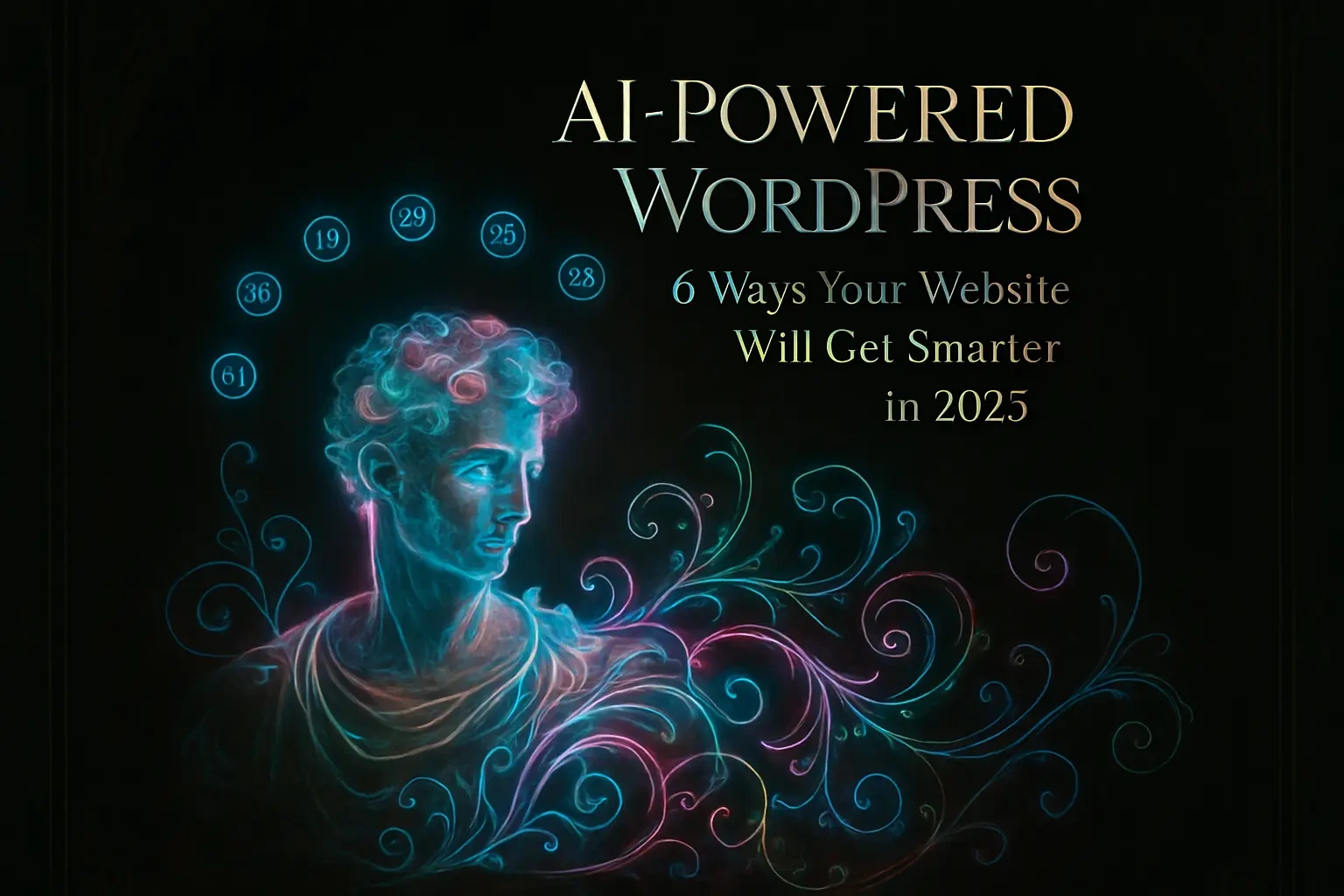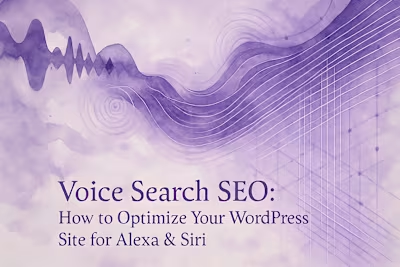AI-Powered WordPress: 6 Ways Your Website Will Get Smarter in 2025

AI-Powered WordPress: 6 Ways Your Website Will Get Smarter in 2025
1. Automated Content Creation and Curation
AI-Generated Drafts and Ideas
Content Rephrasing and Enhancement
2. Intelligent SEO and Performance Optimization
Predictive Keyword Analysis
Automated Technical SEO
3. AI-Driven Website Design and User Experience
Smart Theme and Layout Builders
Predictive User Journey Mapping
4. Enhanced E-commerce with AI
Automated Product Descriptions
AI-Powered Chatbots and Support
5. Advanced Security and Threat Detection
Proactive Vulnerability Scanning
Smart Spam Filtering
6. Hyper-Personalization at Scale
Dynamic Content Delivery
Personalized Recommendations
Conclusion
References
AI-Powered WordPress: 6 Ways Your Website Will Get Smarter in 2025
1. Automated Content Creation and Curation
AI-Generated Drafts and Ideas
Content Rephrasing and Enhancement
2. Intelligent SEO and Performance Optimization
Predictive Keyword Analysis
Automated Technical SEO
3. AI-Driven Website Design and User Experience
Smart Theme and Layout Builders
Predictive User Journey Mapping
4. Enhanced E-commerce with AI
Automated Product Descriptions
AI-Powered Chatbots and Support
5. Advanced Security and Threat Detection
Proactive Vulnerability Scanning
Smart Spam Filtering
6. Hyper-Personalization at Scale
Dynamic Content Delivery
Personalized Recommendations
Conclusion
References
Posted Jul 6, 2025
Discover how AI is revolutionizing WordPress in 2025. From intelligent content creation to predictive SEO, learn the top 6 AI trends that will transform your website.










